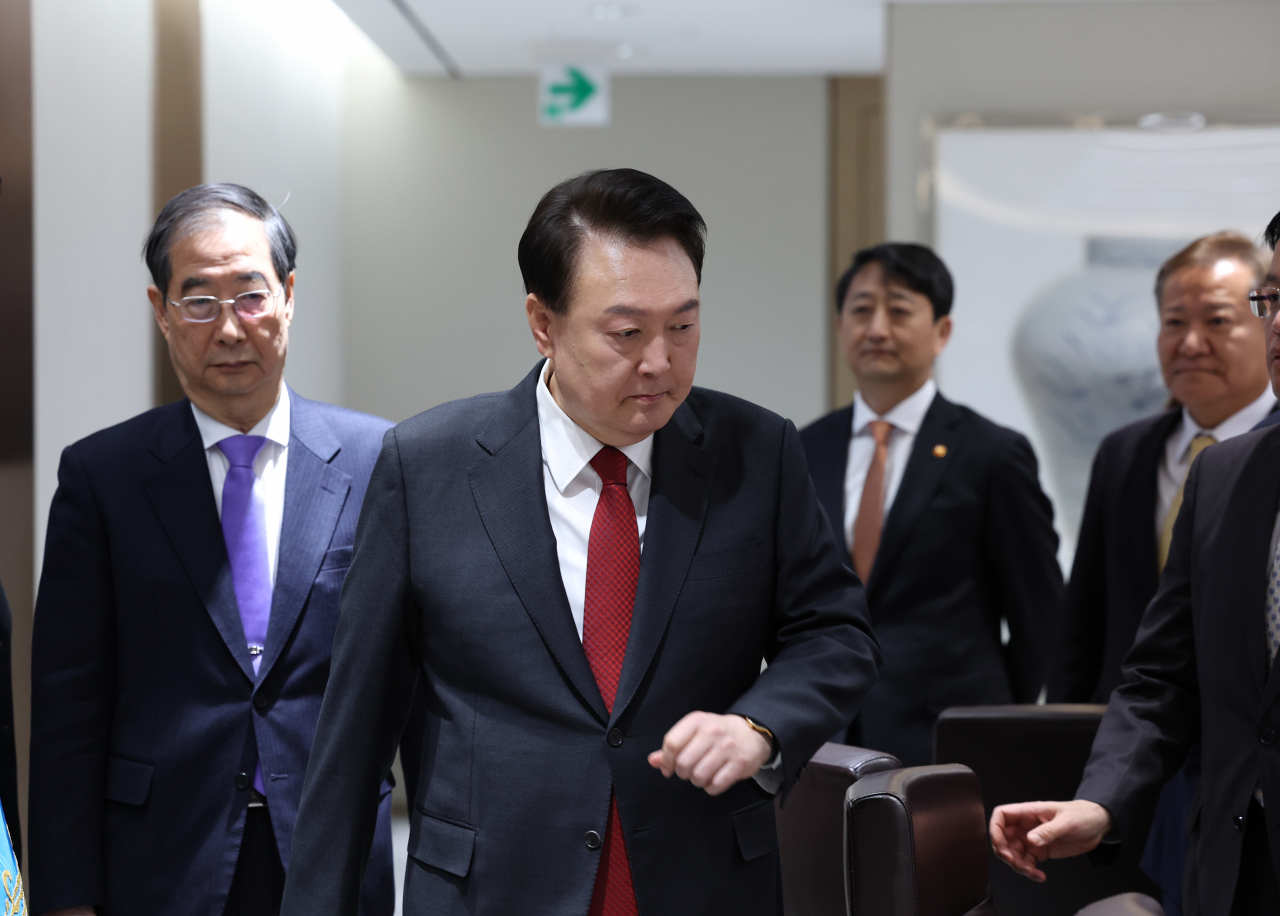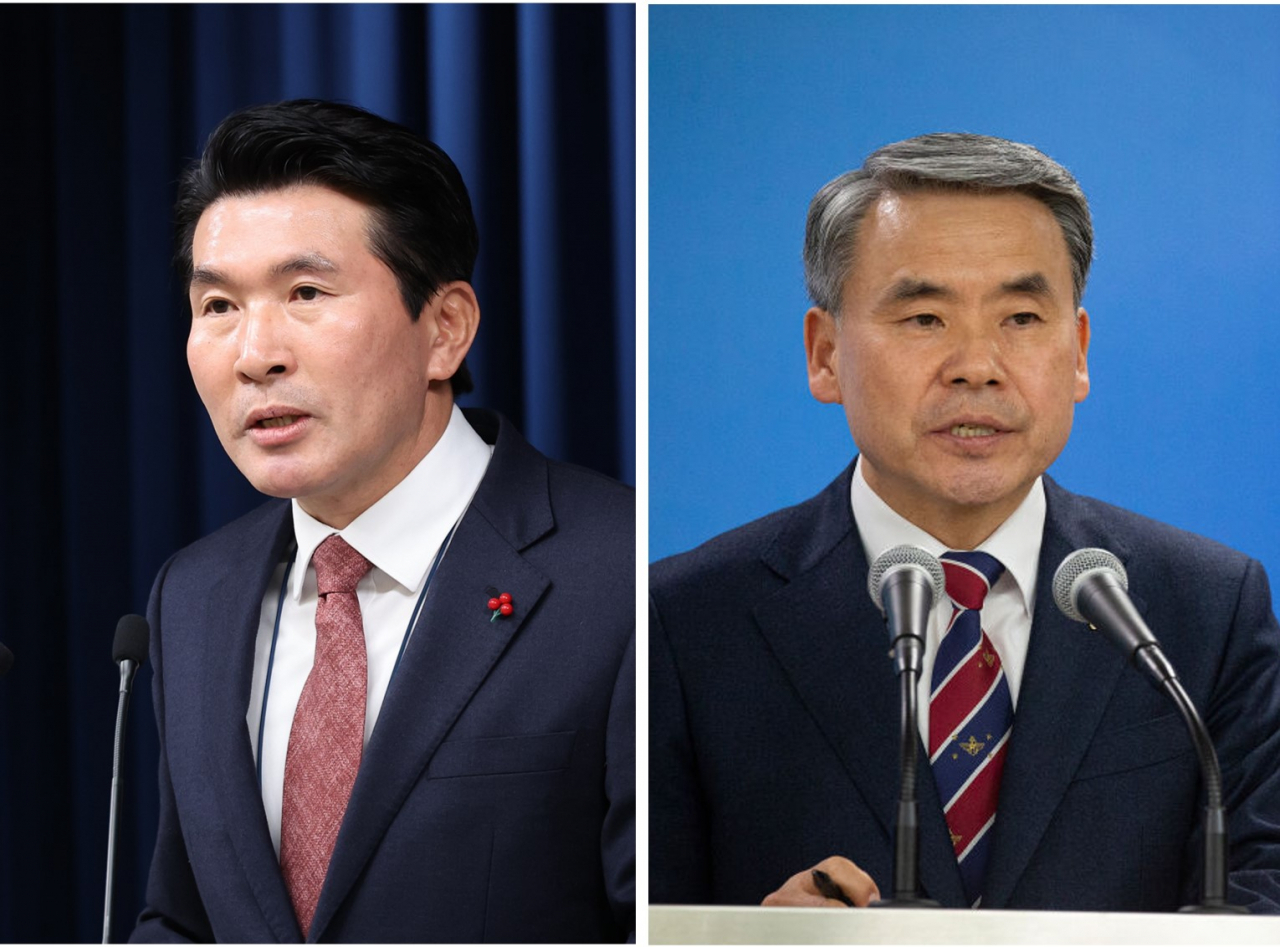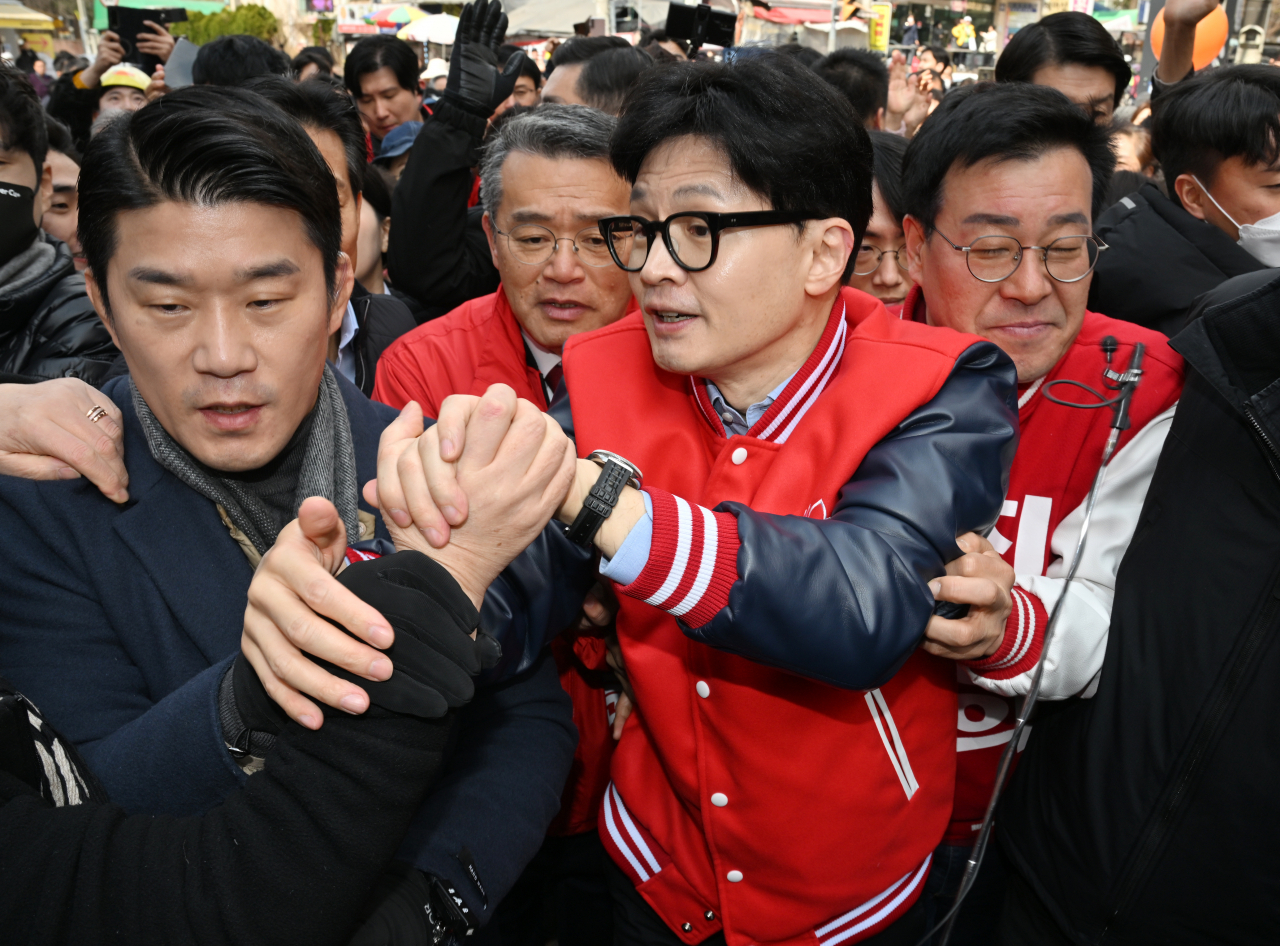Yoon aide resigns, embattled Australian envoy to return
Ruling party chair Han Dong-hoon denies speculations of him locking horns with president
By Son Ji-hyoungPublished : March 20, 2024 - 15:45

Hwang Sang-moo, the senior presidential secretary for civil society, resigned from his post amid growing criticism concerning his conversation with a group of reporters in which he implied that any journalist refusing to be tamed by the Yoon administration could potentially face physical retaliation.
Hwang's resignation was accepted by President Yoon Suk Yeol, his office said, but it did not confirm when it was accepted.
Also, the government said that Lee Jong-sup, the embattled ambassador to Australia, will return to Seoul. According to the Ministry of Foreign Affairs, ambassadors from six countries -- Saudi Arabia, United Arab Emirates, Indonesia, Qatar, Poland and Australia -- will attend a meeting of heads of missions to discuss ways for cooperation in the field of defense industry, beginning Monday.
Yoon's office said it had no knowledge over whether Lee will be summoned by an independent investigator during his visit. Lee is facing probes by the Corruption Investigation Office for High-ranking Officials for alleged abuse of power for having interfered with a government investigation into the death of a Marine amid a rescue operation in last year's torrential rains.
Hwang and Lee have been the subject of controversies within the conservative bloc, fueling rumors of discord between the president and the ruling party chair due to differing opinions on how the presidential office should address them.
In response to news about Hwang's resignation and Lee's return to Seoul, People Power Party Chair Han Dong-hoon said Wednesday that the ruling party will "desperately work to fulfill the public's expectations," during a visit to Anyang, Gyeonggi Province.
This was in line with Han's remarks on Sunday that Hwang should "step down from the post" and that Lee "should return to South Korea."

Yoon's office said Monday that it "respects press freedom and the responsibilities of media organizations." It also denied that it has ever attempted to suppress the media's freedom of expression. The presidential office has also continually argued that its decision to name Lee as the ambassador to Australia, and the government's move to lift the travel ban on Lee imposed by the CIO, are legitimate.
When asked whether Han was locking horns with Yoon, he denied such speculations. Han said in Anyang, "With 20 days left before the general election, the People Power Party and the Yoon Suk Yeol administration share a common destiny."
Any victory in Seoul and the surrounding metropolitan area will be considered crucial for the ruling bloc to have the chance to obtain a majority, given that it holds only about a third of the seats in the 300-member National Assembly.
Among Seoul's 49 constituencies, the ruling People Power Party only held 10 seats in the assembly as of Monday, including Rep. Kim Young-joo, who defected from the opposition in March, and the rest went to the main opposition Democratic Party of Korea.
The gap is even bigger in Gyeonggi Province. Out of 59 seats there, only six are occupied by the People Power Party. In the port city of Incheon, a mere two represent the ruling party, out of its 14 constituencies.
The ruling bloc has seen its popularity faltering in recent weeks, especially in the Greater Seoul area.
A poll by Gallup Korea in the second week of March indicated that the popularity of the People Power Party among Seoulites fell acutely to 30 percent, from 45 percent a week prior.

Han's collisions with Yoon are nothing new.
Han in January decided to allow Kim Kyung-yul, a progressive accountant-turned-conservative party member, to vie for a parliamentary seat for a constituency in Seoul's Mapo-gu, representing the People Power Party.
This decision sparked a backlash from the pro-Yoon faction, given that Kim had been critical of first lady Kim Keon Hee's alleged anti-graft law violation in the scandal surrounding a luxury Christian Dior pouch she received last year. There were also questions about Han's fairness in choosing who would represent certain constituencies during the candidate nomination process for the general election.
Han later revealed in January that he had been asked by the presidential office to step down from the party's leadership post, and that he had refused to do so.
A day later, the encounter of Yoon and Han at a fire-torn market made headlines, signaling an effort to mend their political differences. Han later said that his "deep respect and trust for President Yoon Suk Yeol remains unchanged."












![[Kim So-hyun] The quiet taxi driver from Paris](http://res.heraldm.com/phpwas/restmb_idxmake.php?idx=644&simg=/content/image/2024/04/25/20240425050891_0.jpg&u=)







